Public Advocate Race: CUNY Edition
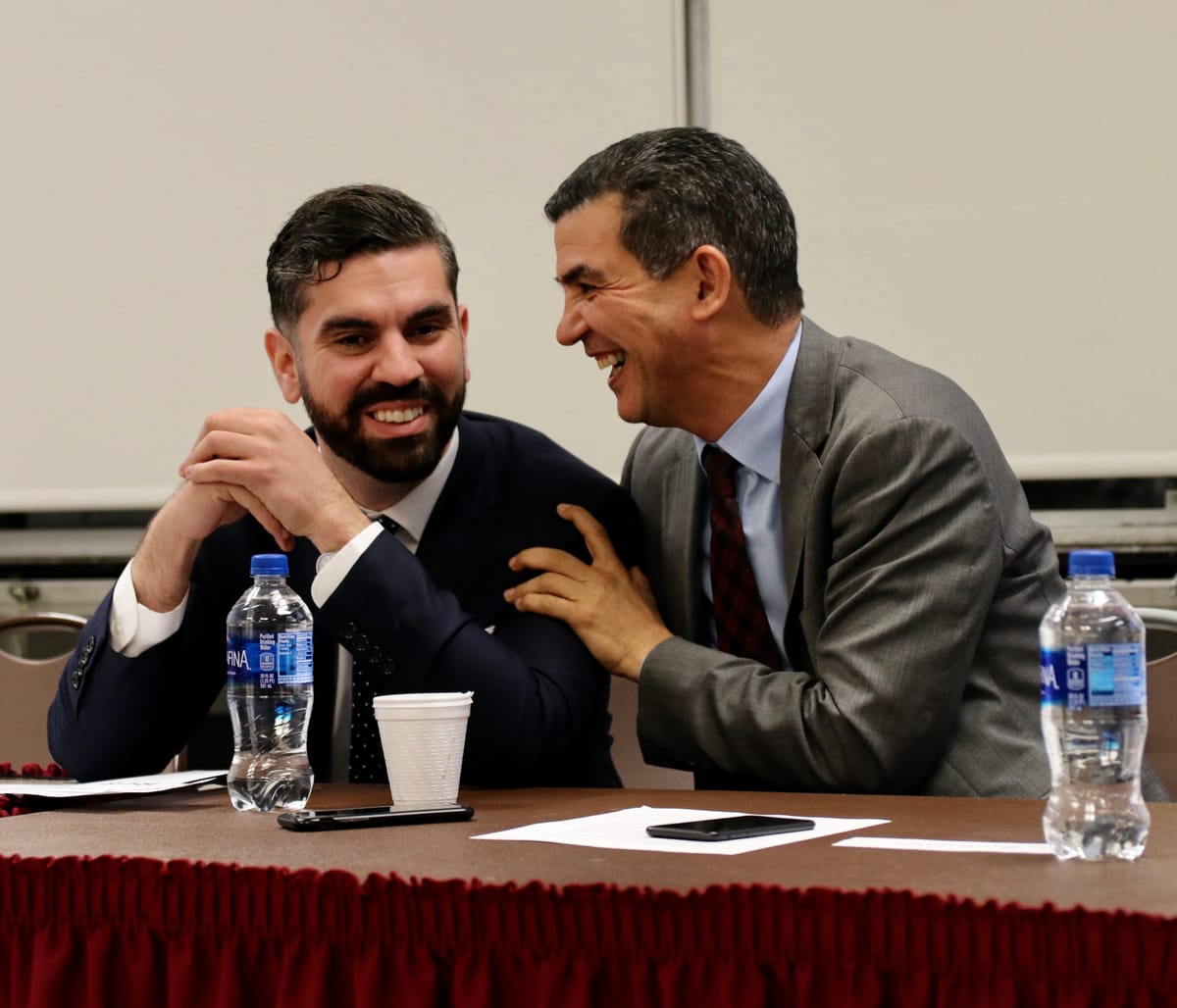

FLATBUSH – Candidates for the February 26 Public Advocate special election have been spending their days in debates, one-on-one series, and just yesterday, a forum by City University of New York (CUNY) students.
The forum at Brooklyn College, organized by the Young Progressives of America, the Brooklyn College student government, and New York Public Interest Research Group (NYPIRG), was supposed to begin at 6:15 p.m. By that time, only two out of the eleven candidates that agreed to come were in attendance – Tony Herbert and David Eisenbach. Once Melissa Mark-Viverito, Ron Kim, and a representative for Jumanne Williams showed up at around 6:30, the forum began. Ydanis Rodríguez and Rafael Espinal trickled in a bit later.
“My… opponents… don’t understand the importance of allowing our young people to have a voice,” Herbert said. “I give credit to those of us who are here, but those that are not here, you should definitely be concerned about because truth be told, they just told you what was important to them.”
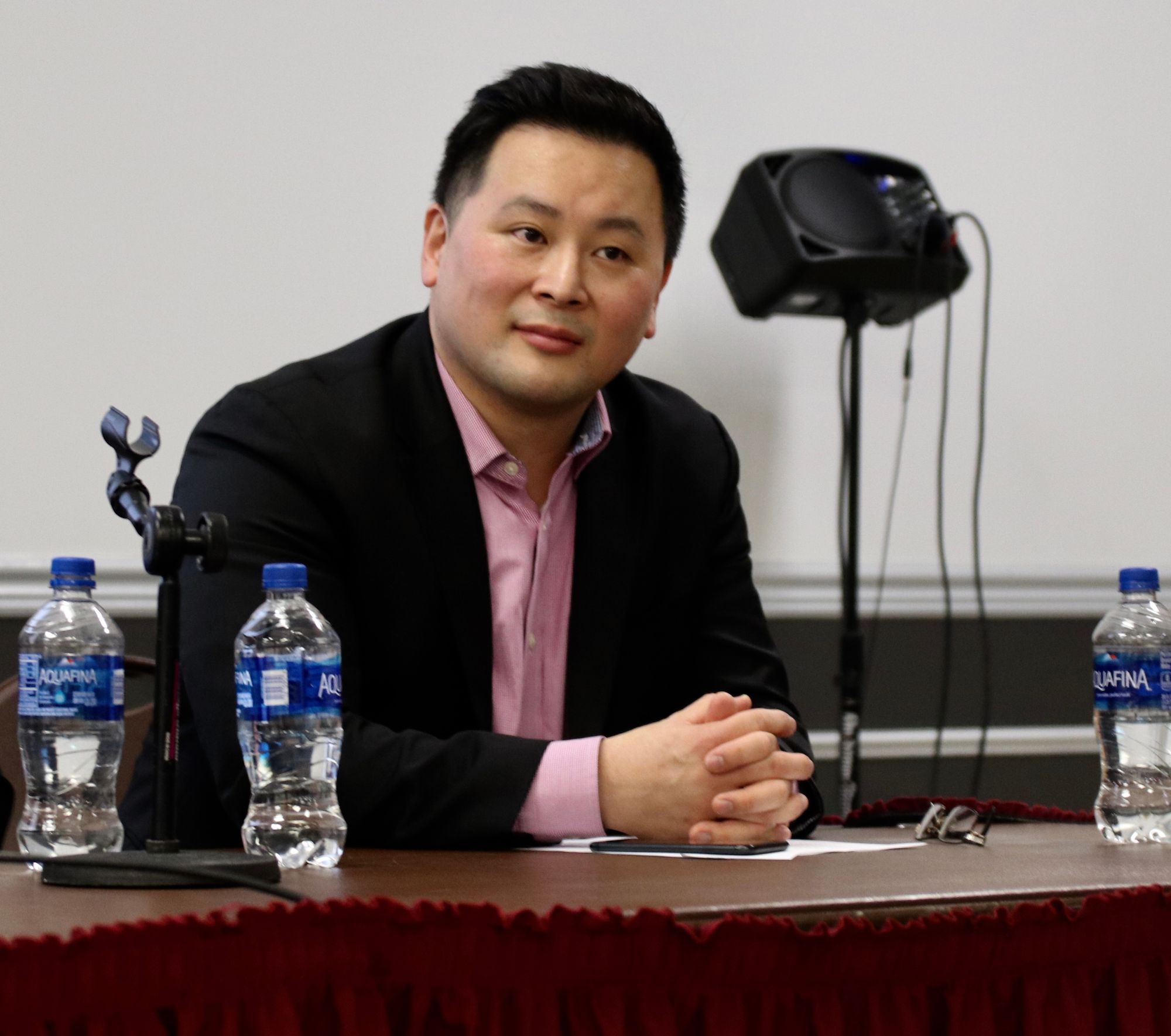
The questions asked during the night were questions related to higher education and CUNY. On November 13, CUNY Interim Chancellor Vita C. Rabinowitz and CUNY Board of Trustees Chairperson William C. Thompson Jr. released a statement saying they were thrilled that CUNY was a “head partner in Amazon’s exciting headquarters expansion, which promises to have a transformative impact on New York City’s economy and our collective ability to spur employment opportunities and growth.”
In December, CUNY students rallied against the Amazon deal and against CUNY’s commitment to support it.
“We don’t support this deal, right?” Rodríguez said. “How can we be giving $3 billion… without any commitment that at least 50 percent of those men and women working in Amazon will be trained by CUNY? That they will be local residents of the City of NY?”
Mark-Viverito said she doesn’t understand how a Board of Trustees that is supposed to represent the institution could put out such a statement. She asked students in the room to raise their hand if they were a part of the student government. She then asked them if they were consulted or brought into conversations with the Board of Trustees. They shook their head no.
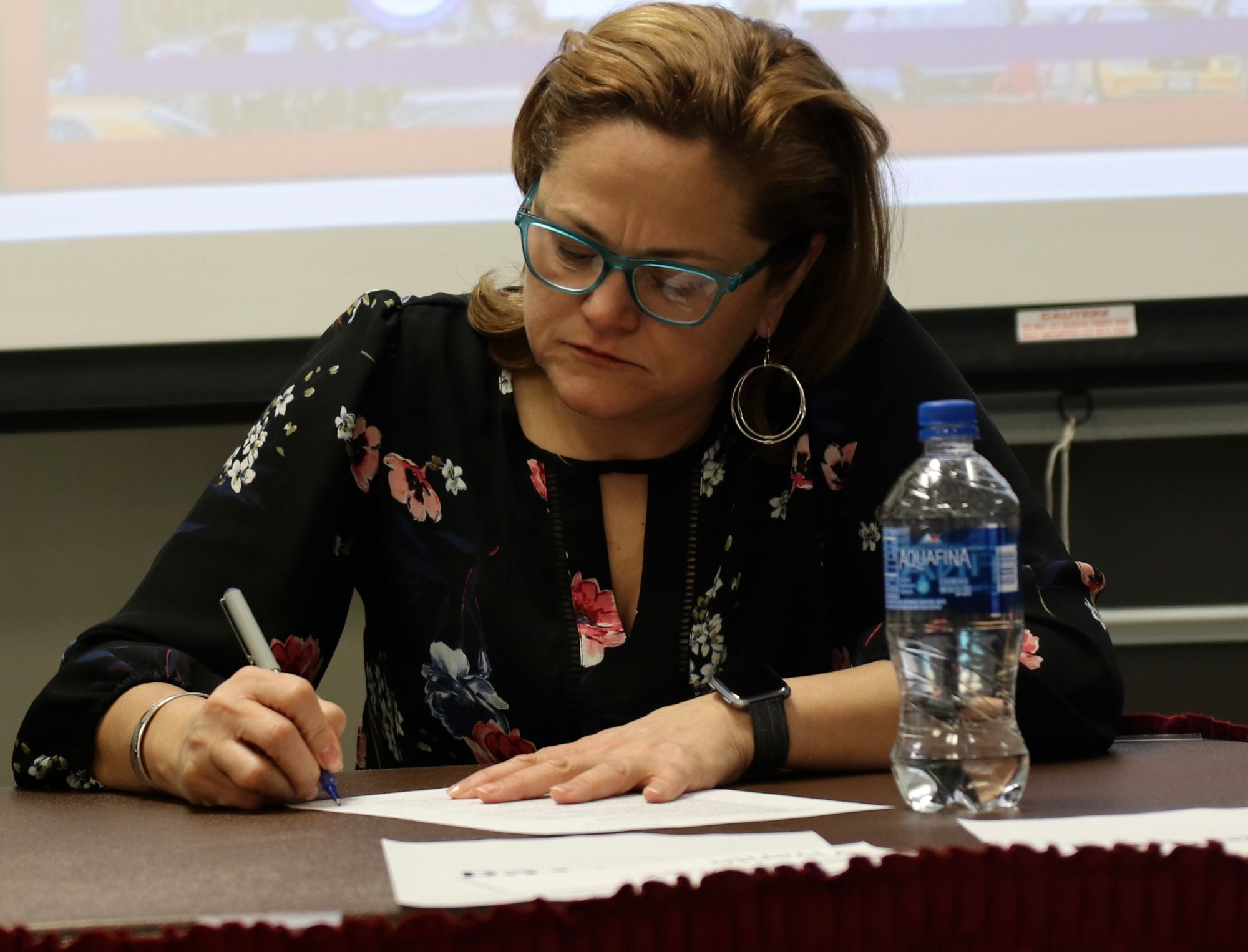
“This is what I believe is really troubling. It’s the lack of engagement with communities that are being impacted by the decisions that are being made,” Mark-Viverito said. “This conversation… about Amazon has completely been an anti-Democratic process because the governor and the mayor who can’t seem to agree on anything, suddenly came upon an agreement to give $3 billion in subsidies to a trillion dollar company.”
“We’re educating our future through these public education institutions and we have to be investing and creating opportunities for our students,” she said.
CUNY adjunct professors currently get paid as low as $3,000 per every course they teach. The Professional Staff Congress (PSC), a union that represents 30,000 CUNY faculty, is demanding a new contract which allows professors $7,000 per course – otherwise, they’re threatening to go on strike, penning a hashtag, #7korStrike.
When asked about the $7k plan, Mark-Viverito admitted she did not know what that was.
“I know the issue here is the fact that we have not seen an increase in the maintenance of effort at the state level. A lot of costs are being picked up by the schools; tuitions are being raised,” she said. “The issue is that we’re over-relying on adjuncts. Adjuncts are carrying a lot of weight and they need to be supported. I will definitely support the ability for adjuncts to organize.”
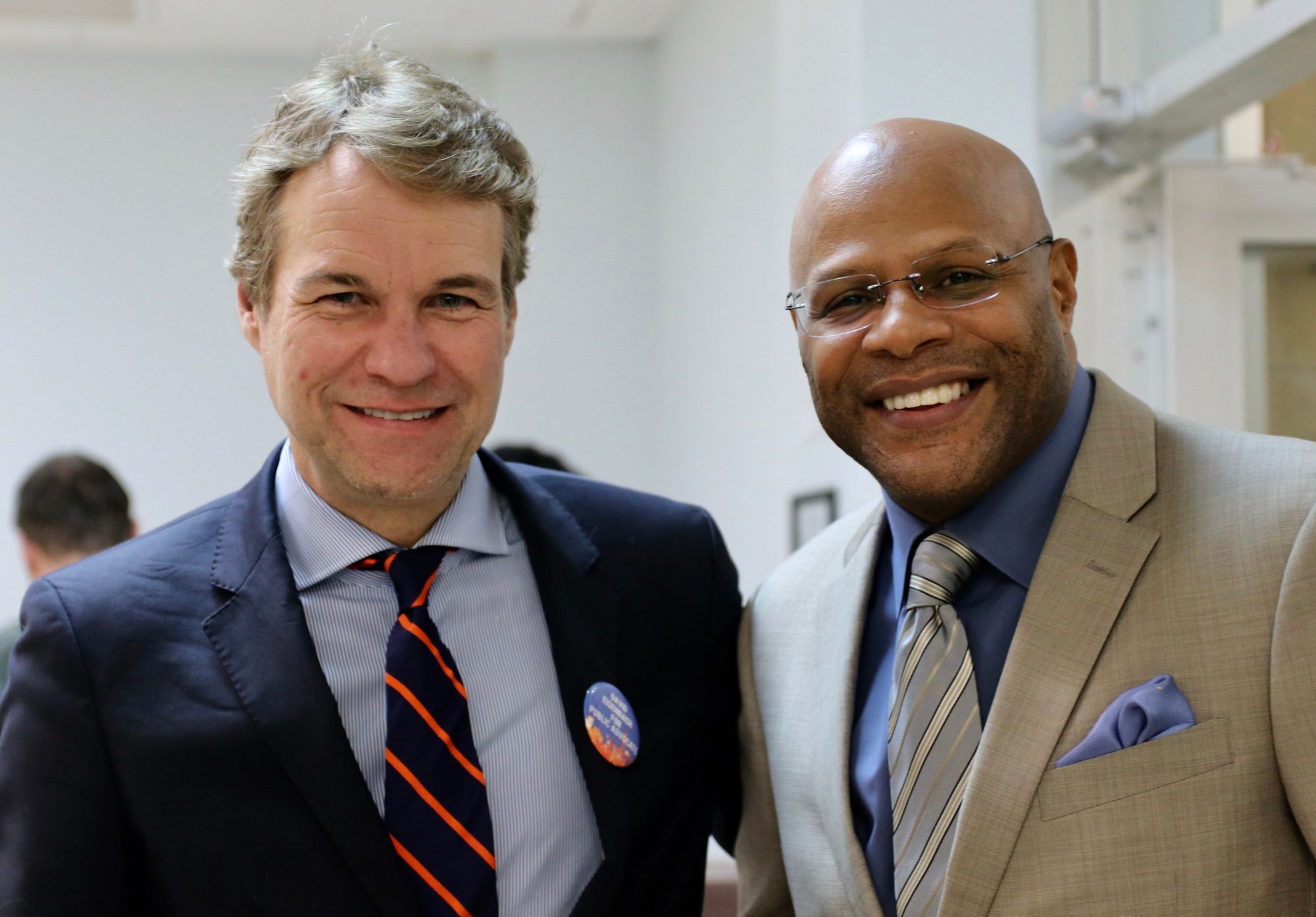
Herbert’s son currently attends CUNY NYC College of Technology. He said he wants his son to have the best education he can get, which is why funding adjuncts is even more important to him.
“If you need more full-time professors… then they should be providing that money. Not putting it into million dollar jails that they want to build in our community,” Herbert said. “At the end of the day, there’s nothing more important than educating and providing our your people with an opportunity to take this society by storm.”
Eisenbach said he was at the protest in December with CUNY students not just because it was against the Amazon deal, but it was also about the issue of adjunct pay. Eisenbach says he knows the life of an adjunct and what it feels to teach multiple courses in multiple schools at the same time because he was an adjunct himself.
“The problem is that our funding priorities in CUNY are all out of wack,” Eisenbach said. “We have financial scandal and corruption in the city university system.”
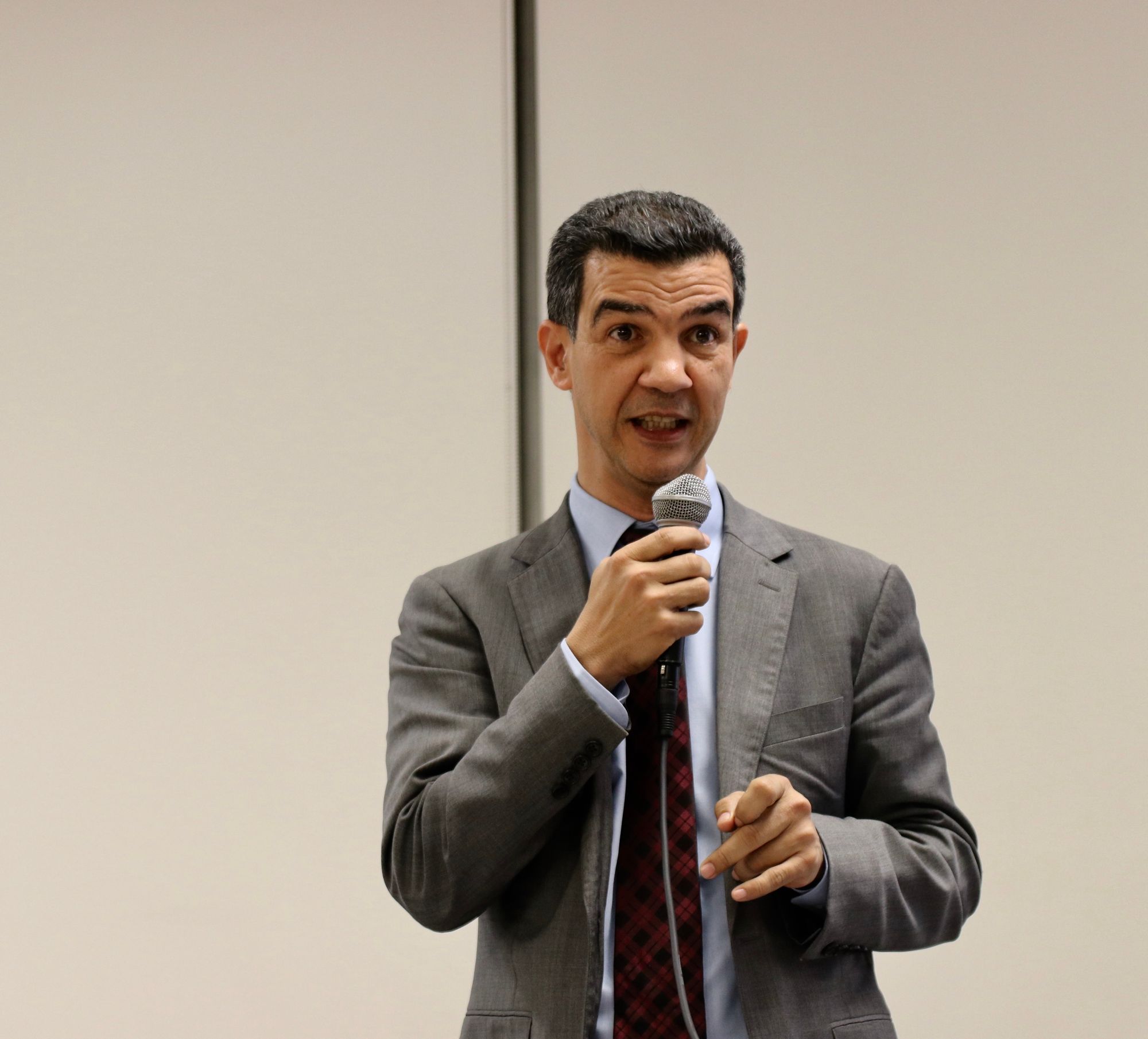
According to Kim, “Money is not going to the proper places. It starts with the will of the students. You are the products. You are the ones that are the future of the school and we should be collaborating every single day with you… instead of dismissing your voices.”
Espinal is a graduate from CUNY Queens College. He said he majored in English and Film and never thought he’d be in politics. “But because of the education I got in CUNY, it prepared me for anything.”
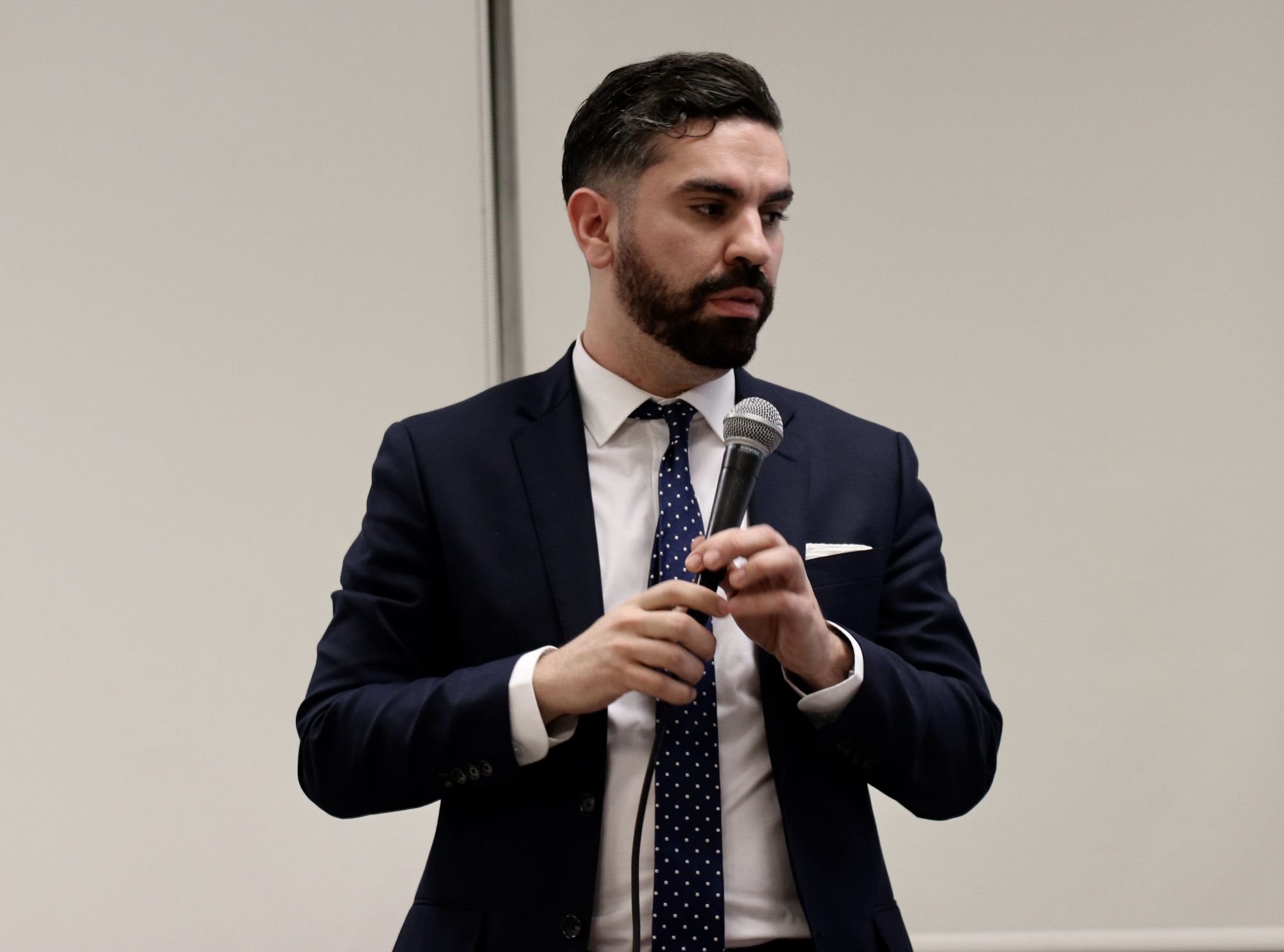
All of the candidates in the forum (at this point there were five left) supported the right for public employees to strike. When asked about the Excelsior Scholarship, which fewer than 2 percent of students received, Espinal said the city and the state need to do better.
“The Excelsior program is a failure and a sham for anyone who wants to go to CUNY,” Espinal said. “I was the first elected official in the City of NY to endorse Bernie, and the reason I did that was because he spoke about student debt and making college free for all. It’s something I truly believe in my heart that we should push forward. We have to make sure everyone has access to get a better education.”




